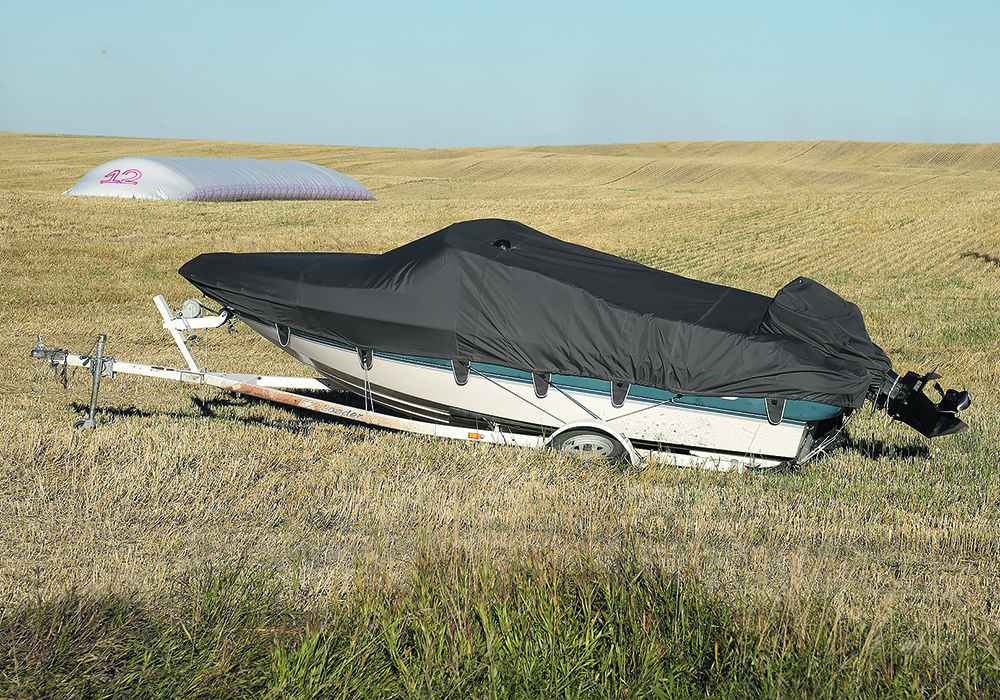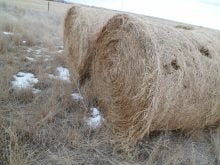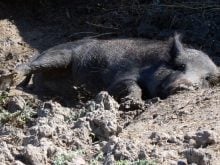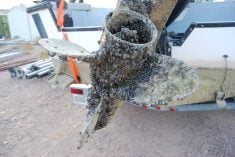British Columbia’s Okanagan Basin Water Board has renewed calls for a ban on all out-of-province watercraft, following the discovery of invasive quagga mussels in neighbouring Idaho.
James Littley, OBWB deputy administrator, said an inspection system is in place but if inspection stations are closed, “anybody can come in from anywhere and launch boats in the water.”
The call for enhanced inspections and a temporary ban of out-of-province watercraft follows the detection of quagga mussels in Idaho in mid-September.
Quagga and zebra mussels are invasive species native to Russia and Ukraine, which are believed to have been transported to North America’s Great Lakes through shipping. Both species can clog irrigation networks, hydroelectric infrastructure and municipal water intakes and ruin beaches with their shells.
Read Also

New coal mine proposal met with old concerns
A smaller version of the previously rejected Grassy Mountain coal mine project in Crowsnest Pass is back on the table, and the Livingstone Landowners Group continues to voice concerns about the environmental risks.
Officials in Idaho treated the Snake River near Twin with a copper-based pesticide. That procedure wrapped up in mid-October but fears remain that the species might find its way into B.C. through the Columbia River system.
“Unfortunately, there are lots of examples of, including one ongoing in Colorado, where they used the same kind of pesticides, including in smaller lakes where it has a better chance of working, and it didn’t work,” said Littley.
Those situations meant the lakes had to be drained to sufficient levels to allow the copper-based pesticide to be broadcast in high enough concentrations to be effective, he said.
It will take until spring for officials to learn how effective the Snake River treatments were and how far the mussels have spread in the Columbia River, Littley said.
“We’re just not sure where the high-risk areas really are right now,” he said. “Between not knowing where the risk is and not having proper inspections or proper legislation in place, the board decided to call for a temporary moratorium on out-of-province watercraft.”
Alberta and B.C. have increased mussel surveillance programs compared to a decade ago, but inconsistencies exist. There is also need to tighten federal programs along international ports of entry, said Littley.
The biggest concern regarding a watercraft moratorium is from a tourism perspective but there is also understanding that a mussel infestation would have greater impacts.
“This isn’t targeted at prairie boaters, but we are kind of at a loss because until the province steps up and fills these gaps in the inspection system, we are very concerned with the close proximity of this new infestation,” he said.
In addition to damage to infrastructure and beaches, Littley added an invasive mussel infestation could devastate efforts to return salmon to the province’s rivers.
Calls for increased surveillance of invasive mussels have also been coming from Alberta, specifically on the need to increase the hours and locations of inspection stations.


















